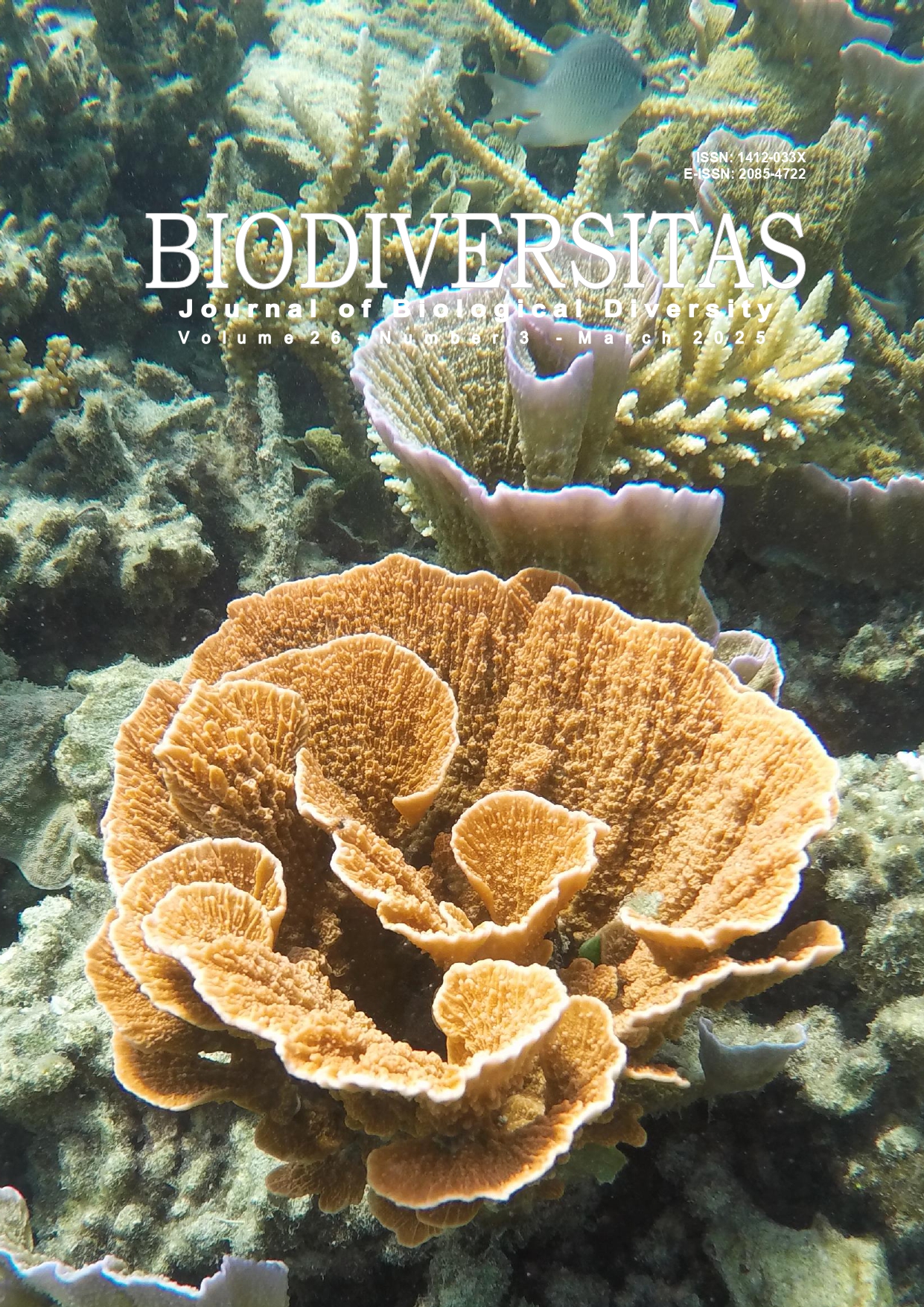Exploring plastic-degrading enzyme producers from Ascidian-associated bacteria in Karimunjawa Islands, Indonesia
##plugins.themes.bootstrap3.article.main##
Abstract
Abstract. Ayuningrum D, Shukor MY, Patria MP, Pasaribu B, Sulistiowati S. 2025. Exploring plastic-degrading enzyme producers from Ascidian-associated bacteria in Karimunjawa Islands, Indonesia. Biodiversitas 26: 1050-1060. Ascidians are sessile, benthic invertebrate chordates that attach to various substrates, including hard corals, ship decks, buoys, and marine debris such as wood or plastic waste. This study aimed to isolate ascidian-associated bacteria from Karimunjawa National Park, explore their potential as PETase enzyme producers, and identify the bacteria using morphological and molecular approaches via the 16S rRNA gene. The research employed an exploratory descriptive and experimental approach. A total of nine ascidian samples were used as inoculum sources, specifically Eusynstyela sp., Didemnum sp., Clavelina arafurensis, Pseudodistoma fragile, Lissoclinum sp., Rhopalaea crassa, Phallusia sp., Rhopalaea macrothorax, and Aplidium breveriventer. From these samples, 45 pure bacterial isolates were obtained. Screening for plastic degradation activity revealed that 33% of the isolates exhibited enzymatic activity, with two isolates (13%) demonstrating plastic-degrading activity as many as ?5%. These two potential isolates, KJ12-01 Z (-4)/3 and KJ07-01 (-2)/1, were identified as Gram-positive cocci and Gram-negative rods, respectively. Sequence alignment and BLAST analysis from 16S rRNA gene amplification using PCR technique on the NCBI database showed that bacterial isolate of KJ12-01 Z (-4)/3 had 99.16% similarity with Staphylococcus condimenti, while KJ07-01 (-2)/1 had 99.36% similarity with Alloalcanivorax dieselolei. These findings indicate that ascidian-associated bacteria can serve as a promising source of PETase enzyme-producing inoculum.

